The 7th International Conference on Evidence Law and Forensic Science (“the 7th ICELFS 2019”) has successfully held from July 31 to August 2,2019, in Freiburg, Germany, which was jointly sponsored by the “Double First-Class Initiative” of China, the “2011 Plan” of China - Collaborative Innovation Center of Judicial Civilization (“CICJC”), and the “111 Plan” of China – Evidence Science Innovation and Talent Base, while cohosted by China University of Political Science and Law (“CUPL”), International Association of Evidence Science (“IAES”) and the Max Planck Institute for Foreign and International Criminal Law (“MPI”), and organized by the MPI. The 7th ICELFS was attended by more than 80 delegates including evidence scholars and forensic scientists from 19 countries including China, U.S., Germany, U.K., Swiss, Sweden, Spain, Holland, Japan, Canada, Saudi Arabia, Australia, Colombia, Tanzania, Poland, Belarus, Mexico, Qatar and Turkey, etc. The Chinese delegation includes 29 legal scholars and forensic experts from China University of Political Science and Law, Ministry of Public Security, Beijing Jiaotong University, North China University of Technology, East China University of Political Science and Law, Sun Yat-sen University, Shandong University of Political Science and Law, Nanjing Audit University, China National Accreditation Service for Conformity Assessment, etc. Led by Professor Baosheng Zhang (Co-Director of the CICJC), the CUPL delegation has a total of 18 members, with 15 professors, 3 Ph.D. candidates, and 1 master students. Participants had comprehensive discussions under the theme of the 7th ICELFS – Evidence Law and Forensic Science from a Comparative Perspective.

Since 2007, initiated and cohosted by the Institute of Evidence Law and Forensic Science at the CUPL (Key Laboratory of Evidence Science of the Ministry of Education), the ICELFS has been growing into a biennial communication feast for the evidence law jurists and forensic scientists in China and around the world. The 7th ICELFS is the inaugural convention in Europe. The initial four conferences were in Beijing (China), the fifth in Adelaide (Australia) and the sixth in Baltimore (U.S.).
The opening ceremony was launched on 31 July morning with a welcome address from Professor Hans-Joerg Albrecht, a director of the MPI. Then, Professor Jan Lieder (Dean, Law Faculty of the University of Freiburg), Senior Prosecutor Eckart Berger (on behalf of the general prosecutor of Freiburg), Professor Ronald J. Allen (President of the IAES), and Professor Baosheng Zhang (Co-Director of the CICJC) delivered their opening addresses respectively. The ceremony was chaired by Professor Ralf Poscher (new director of the MPI on Public Security Law).
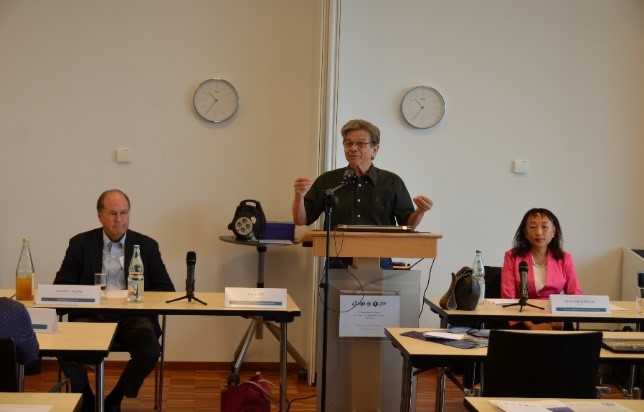
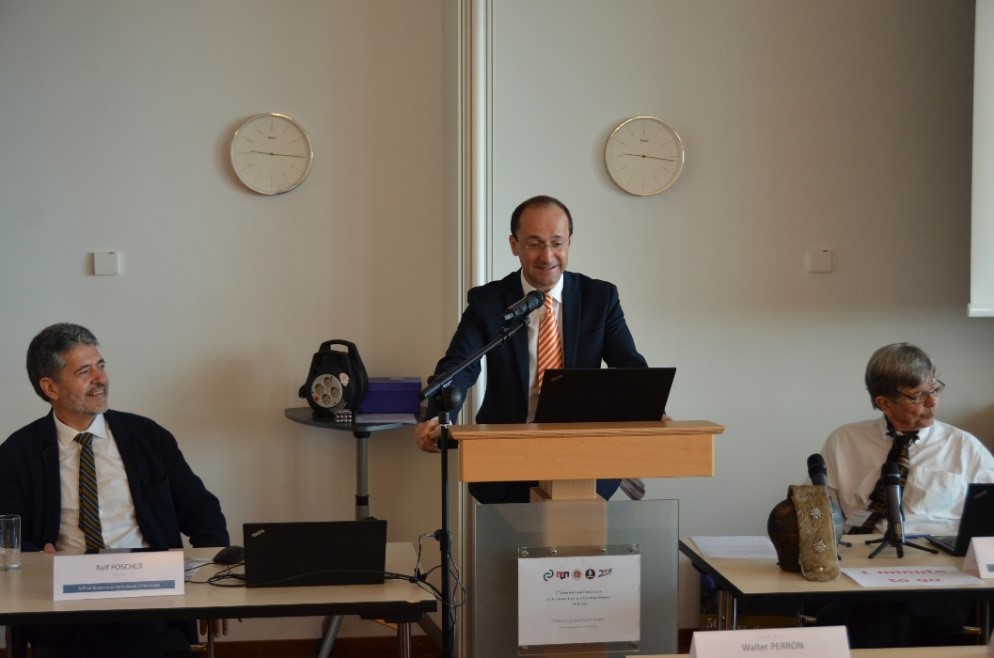
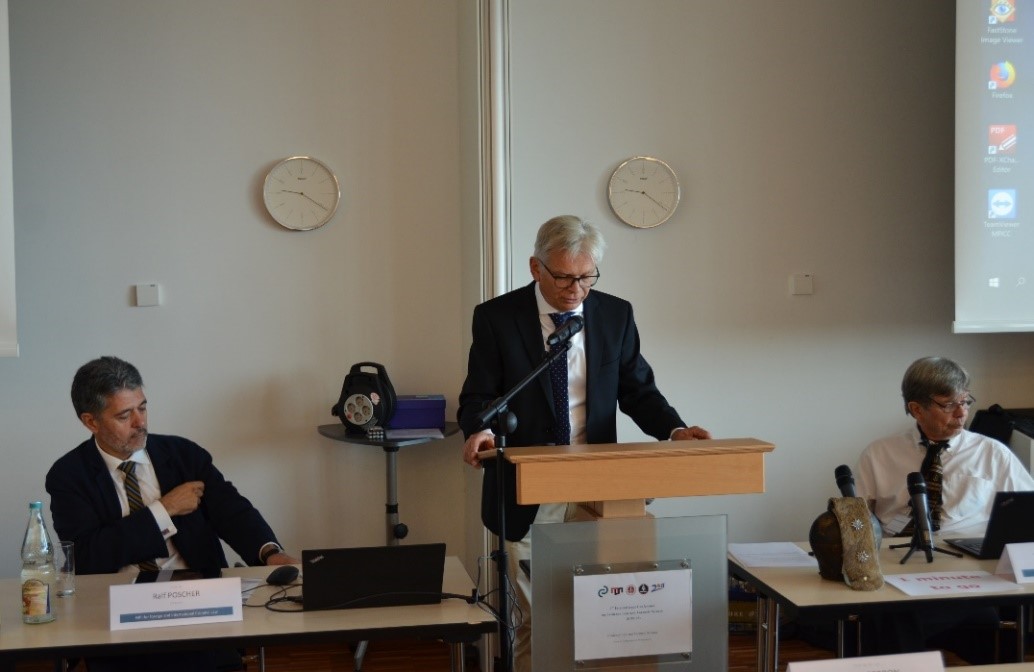
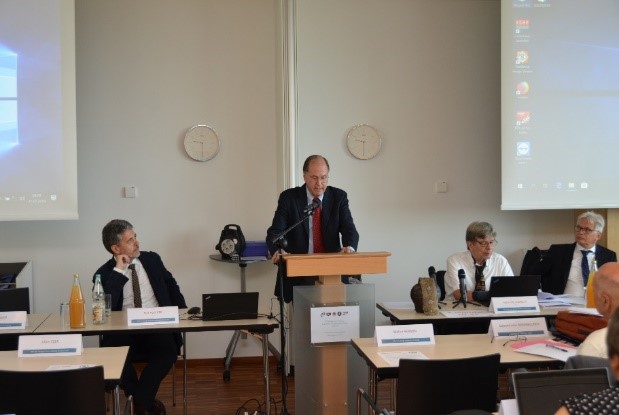
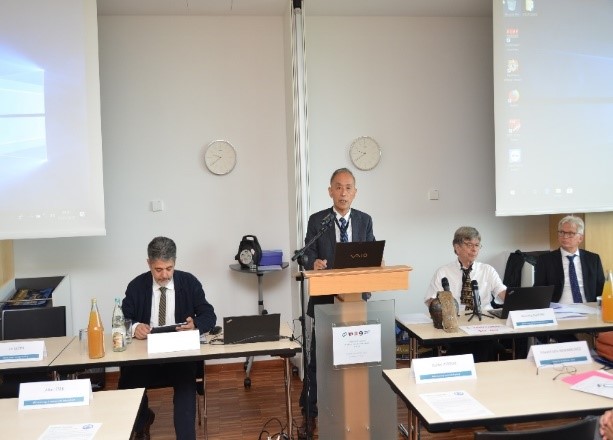
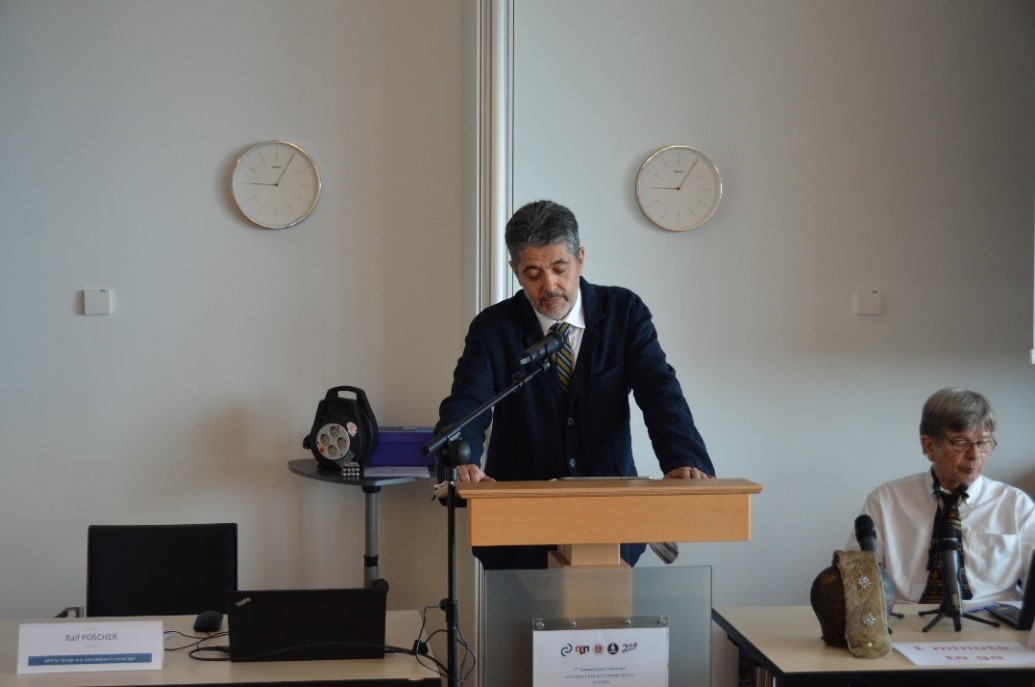
Following the welcome ceremony, the opening plenary discussed the major topic of “the Evidence Law and Forensic Science from a Comparative Perspective”. Keynote speeches included “Forensic Science, Evidence Law, and Complexity” by Professor Ronald J. Allen, “Universal and System-dependent Aspects of Criminal Evidence Law” by Professor Walter Perron, “The Goals of Comparative Evidence Law Studies” by Professor Edward Imwinkelried, “Evidence Law’s Presumption of Innocence” by Professor Paul Roberts, “A Preliminary Study of General Evidence Science” by Professor Baosheng Zhang, “Consideration of Evidence and Judicial Conviction” by Professor Wolfgang Frisch, and “The Decisional Nature of Probability and Plausibility Assessments in Juridical Evidence and Proof” by Associate Professor Alex Biedermann.
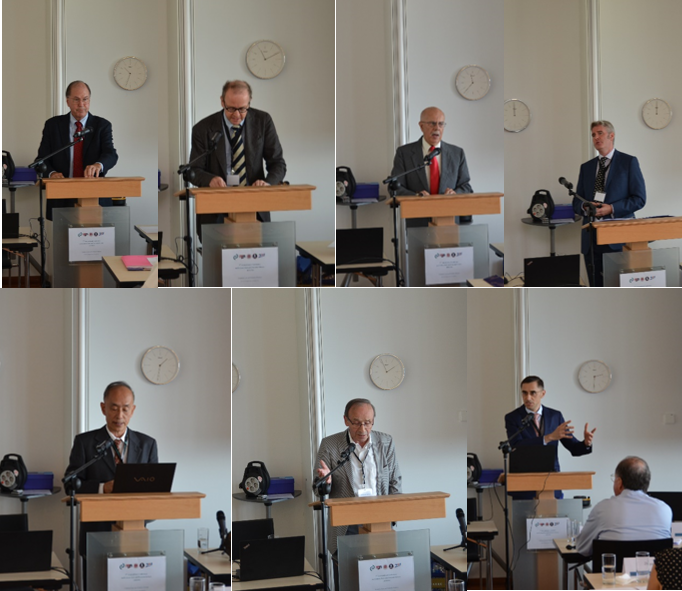
Following the opening plenary, a guided tour of MPI and its library was provided by Ms. Elisabeth Martin, the head of MPI library, and Mr. Jingye Huang, a research fellow of joint oversea center of the CICJC based at the MPI - the Center for Chinese Legal Studies. The guided tour was followed by a welcome reception in Freiburg city hall, which was hosted in the name of the mayor.
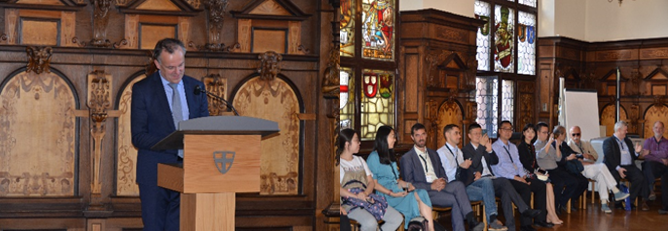
Besides the major topic in the opening plenary, the conference proceedings have 10 sessions, including evidence law on 1)Evidence and Fair Trial Rights, 2)Specific Evidentiary Doctrines, 3)Evidence Theory, 4)Evidence-Other General Matters, 5)Selected Types of Evidence: Aspects of Underlying Logical Relevances, 6)Frontiers Shaping Society in the Future (Evidence); and forensic science on 1)Forensic Science: Topics Impacting Many of or All Forensic Science, 2)Historical, International Perspectives on Forensic Science and Expertise, 3)Specific Forensic Science and Problems, 4)Frontiers Shaping Society in the Future (Forensic Science). In total, 46 people delivered a 15-minute presentation during the parallel sessions.
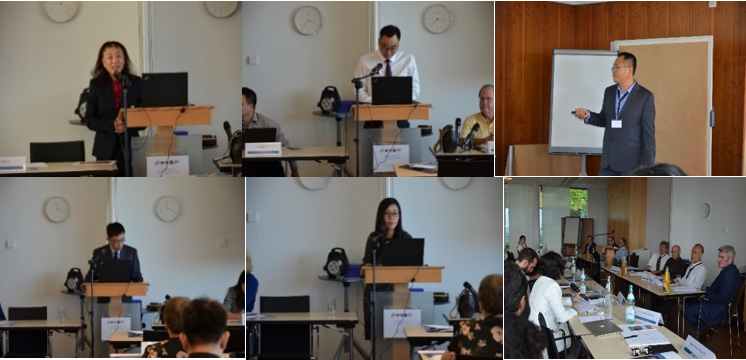
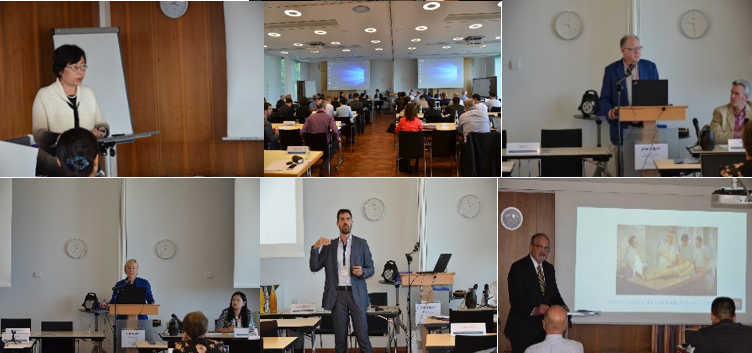
During the conference, a Council Meeting of the International Association of Evidence Science was held. Five scholars formally became new members of the IAES, including Carmen Vazquez (University of Girona, Spain), Giovanni Tuzet (University of Bocconi, Italy), Christian Dahlman (Lund University, Sweden), Alex Stein (Justice of the Supreme Court of Israel, Israel), and Michael S. Pardo (University of Alabama School of Law, U.S.).
Appendix:The Name List of the Chinese Delegation (listed in no particular order)
Name |
Institution |
Topic of the Presentation |
Prof. Baosheng Zhang |
CUPL |
A Preliminary Study of General Evidence Science |
Prof. Liling Yue |
CUPL |
Challenges of the Presumptions of Innocence |
Prof. Zhong Zhang |
CUPL |
What do you think of the Evidentiary Rights |
Prof. Dong Zhao |
CUPL |
Forensic Identification of Abusive Head Trauma in Child Abuse Cases |
Prof. Pengpeng Shi |
CUPL |
On Material Truth: A Study in the Context of German Criminal Proceedings |
Prof. Gefei Ji |
CUPL |
Proof of Fault in Medical Tort Case: Research Based on Article 58 of Tort Liability Law |
Prof. Zhiyuan Guo |
CUPL |
Live Witnesses in Chinese Criminal Courts |
Assoc. Prof. Fumin Chu |
CUPL |
On Chinese Exclusionary Rules of Illegal Electronic Data |
Assoc. Prof. Jing Lin |
CUPL |
Real “Immediacy” in Chinese Criminal Procedural Law? |
Assoc. Prof. Hongqi Wu |
CUPL |
Confirmation in Judicial Proof in China: Functional Expansion and Theoretical Analysis |
Assoc. Prof. Bing Li |
CUPL |
Research on Scrutiny Rules of Reliability in Handwriting Expertise |
Jian Xiang |
CUPL |
Exploration of Visual Field Evaluation Methods in Forensic Science: An Analysis of Classical Cases of Visual Field Defects Caused by Injury to the Retina, Optic Nerve, and Higher Visual Pathway |
Assoc. Prof. Luping Zhang |
CUPL |
A Study on the Chinese Employment of Linguistic Politeness |
He Yuan (co-author with Prof. Xu Wang ) |
CUPL |
Confrontation and Integration: The Present and Future of China’s Forensic Examinations on Medical Malpractice Dispute |
Hongxia Liu |
CUPL |
Research on the Progress of Forensic Clinical Science in the Past Ten Years |
Dan Yun |
CUPL |
The History of Expert Testimony from an Epistemological Perspective: Education or Deference? |
Yi Jiang |
CUPL |
The Development and the Enlightenment of the Evidence based Narrative Theory |
Chi Zhang |
CUPL |
Rethink Probability Theory through the Lens of Chinese Civil Trial |
Rujing Jia |
China National Accreditation Service for Conformity Assessment |
Use of Proficiency Testing as a Tool for Quality Assurance in Forensic Science |
Lanchi Xie |
Ministry of Public Security |
CFRT2018: Evaluation of the Latest FR Algorithms for Forensic Application |
Xingzhou Han |
Ministry of Public Security |
China's Questioned Document Examination and the State of Standardization |
Wei Huang |
Ministry of Public Security |
Forensic Application of Spectral Imaging: Fingerprint Detection Using Visible Absorption and Luminescence |
Xing Huang |
Ministry of Public Security |
Primary Bibliographic and Visualized Analysis of Research Keywords in Forensic Science Based on Chinese Journal Paper |
Prof. Aiyan Zhang |
Shandong University of Political Science and Law |
Judicial Judgment of Psychiatric Evaluation Opinions |
Assoc. Prof. Bangda Chen |
East China University of Political Science and Law |
Authentication: A Preliminary Analysis Based on Comparative Study |
Assoc. Prof. Hua Shang |
North China University of Technology |
Electronic Data Preservation and Storage of Evidence by Blockchain |
Asst. Prof. Fei Zheng |
Beijing Jiaotong University |
What is Evidence Science |
Dr. Li Li |
Sun Yat-sen University |
Admissibility of Evidence Obtained through Criminal Mutual Assistance between Mainland China and Hong Kong |
Dr. Shuhao Chen |
Nanjing Audit University |
DNA Evidence and Wrongful Convictions in Mainland China: A Case Approach |
Link:https://www.mpicc.de/de/aktuelles/7th-international-conference-on-evidence-law-and-forensic-science-icelfs/ (Report by the MPI)
(Text:Jing Lin / Bild:Jingye Huang)

